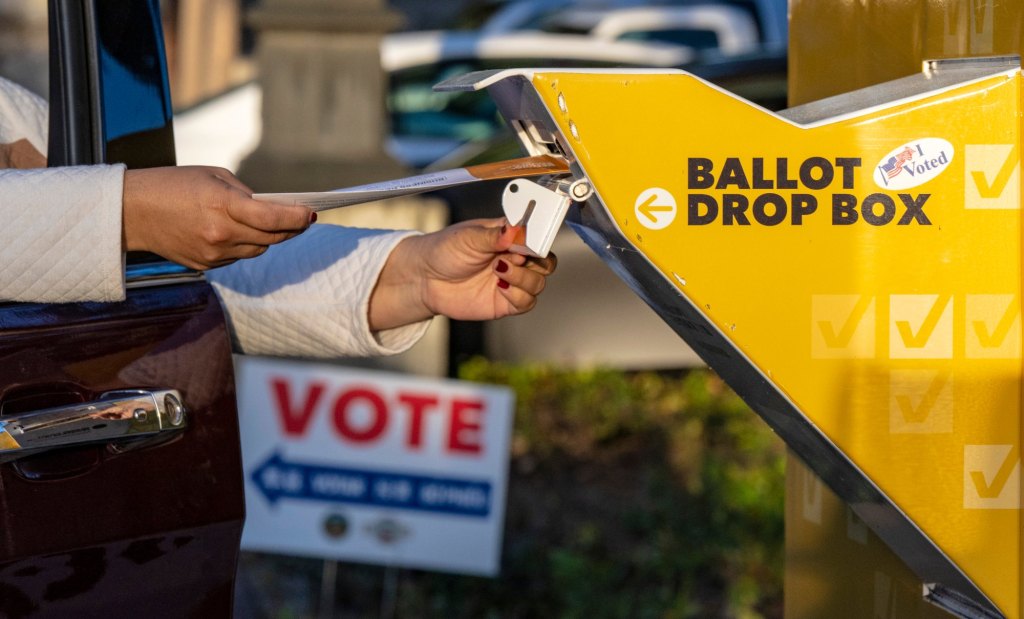
A plurality of political consultants believe the quality of candidates has declined during recent election cycles. The “clown car,” as one consultant puts it, attracts angry candidates with little experience in public office. Many political scientists believe that a constituency of authoritarians will outlast whatever fate Donald Trump faces this November.
The Republican establishment has already accepted that it cannot ignore authoritarian voters. The responsible press cannot ignore them either, but what journalists owe this subset of Americans is a live question: How should local and regional news outlets cover authoritarian candidates who draw support from a substantial percentage of the electorate?
In California, 11 election deniers are on the ballot for Congress, according to the non-partisan States United Action. While Arizona is home to the greatest number of election deniers running for Congress, major tech players in Silicon Valley are funding the Trump-JD Vance ticket.
In more routine political climates, a simple journalistic logic applied to covering candidates: those who attract a significant following in a community deserve generous attention. In retrospect, this approach rested on two assumptions — that parties would act as gatekeepers in presenting voters with reasonable candidates, and that voters would act as the ultimate backstop in rejecting anti-democratic candidates.
In my research on media and democracy, I argue that the press is required to give voice only to those who extend tolerance to others. Tolerance is not neutral in an absolutist sense — it extends only to candidates who are themselves tolerant. A provisional tolerance would justify the decision of cleveland.com (The Plain Dealer) in 2021 to ignore candidates who make reckless and divisive statements just to get attention.
Benjamin Schupmann, author of “Democracy despite Itself,” acknowledges that “it would be better to simply defeat antidemocrats at the ballot box. Yet history shows this does not always work.” Many citizens “are at best weakly committed to democratic principles. Some are illiberal and antidemocratic. Others prioritize partisan interests over democratic principles.”
To be sure, many of us know people with authoritarian dispositions, and they are not wantonly threatening us with imprisonment. Authoritarians value obedience to authority. As parents they want children to show respect. Ordinary expressions of authoritarianism bring to mind Roman Hruska, the Nebraska senator who reminded colleagues in 1970 that even mediocre people “are entitled to a little representation.”
Perhaps, but democracies have a right to defend themselves. Many people with authoritarian personalities endorse a hierarchy in which some groups are inferior to others. They enjoy jokes that target people they deem to be deviant.
When Bay Area officials offered remote viewing options beginning in 2020, city council proceedings in San Jose and Walnut Creek were Zoom bombed with racial slurs. Like Heath Ledger’s Joker in “The Dark Knight,” authoritarians thrive in chaos. The goal is to intimidate, to stoke fear, not to debate policy.
News editors in communities that have become laboratories for authoritarianism will have to decide when a candidate deserves The Plain Dealer treatment. The provisional tolerance I’m advocating insists that journalists’ obligation to popular candidates and their likely voters is not limitless.
Fear and divisiveness are not preordained. Circus clowns with menacing makeup should be seen for what they are — gluttons for attention pedaling around in tiny cars. They only become dangerous if we grant them attention they don’t deserve.
Michael McDevitt is a professor of journalism at the University of Colorado Boulder and a former reporter and editorial writer for Bay Area newspapers, including the Peninsula Times Tribune and the Oakland Tribune.

















































